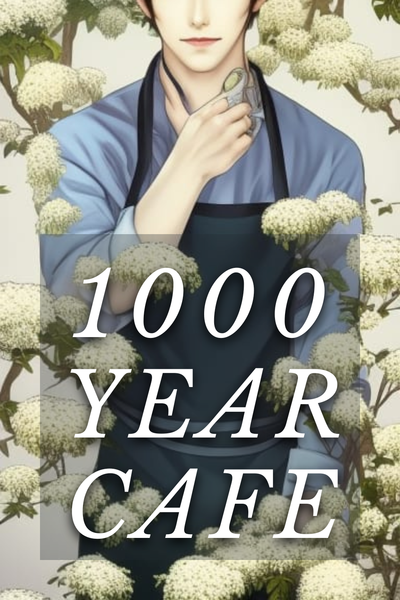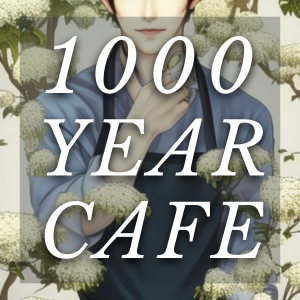“Bring it in,” said the chairman, nodding toward the double doors, and on queue, they opened, and a duo of aides carefully brought in the luncheon on a long, carefully adorned cart. In the middle, the seven-layer cake in its sculpted simplicity took the stage – two slices neatly cut and placed on dainty bone china plates in front of it. On its right, the charcuterie board (without a single peppercorn moving due to how smoothly the cart rolled). On its left, the sandwich cubes, in perfect alignment on their own platter, were already carefully selected and placed on two dishes. Among each dish, the cucumber roses were neatly placed in miniature ‘vases’, the size of sake cups. The aides, their hands in white gloves, and with the purposeful and careful movements of butlers, placed some of the fruit and cheese on the smaller sandwich dishes, carefully set a cucumber rose on each plate, and then brought them to Do Hyun and the taller man, setting them down neatly in front of them and then placing a dainty silvery fork in front of each of them.
The Chairman explained each of the foods, the ingredients we sourced, the techniques used in the cultivation and preparation of each item, and then finished his presentation with, “and everything here was made personally by Jung Hwa and her assistant.”
Do Hyun stared down at the food. At the sandwiches I crafted with the precision of a watchmaker. At the cake. The cucumber flowers, the dotted ‘pollen’, the misted balsamic. At the glistening, sugared bird that I literally carved out of a melon with a scalpel, and the black sesame seeds I had set to make the bird look like it had eyes.
His comrade did the same. They looked at the food for a few moments, their hands not approaching their plates. Every few seconds, the taller one glanced up at me suspiciously.
“I think…” Do Hyun said softly, his tone difficult to discern, “I think I’d just like a tea.”
Everyone froze.
Especially me. They wouldn’t eat?
Even his partner made a quick look at him before nodding and leaning back in his chair, not touching the food.
“Is there – is there something wrong with the food?” Squeaked the Chairman.
Do Hyun didn’t immediately respond. But he instead looked directly at me, his cold eyes now intensely focused. “Barley tea. Bring it to me in a clay cup, in the old style of pottery.”
I tried to be polite to the rest of the room, asking, “would anyone else like—”
“No,” Do Hyun interrupted, staring intently at me. “Nobody else.”
The room went completely silent.
Nobody argued.
I nodded as if I were a made-to-order barista and hurried out. Without even knowing whether we had clay cups, or barley at all.
What a confusing request. Barley tea wasn’t the kind of thing I imagined a person like him to drink. I would have thought wine, or some obscure coffee roast.
But barley tea?
Just boricha?
In a clay cup of all things?
This was going to take time – unless I really, really hurried.
The corporate aide sprinted with me back to the test kitchen, while I shouted instructions to my assistant who was waiting there – prepare a wok – no oil, turn the burners on to maximum, fill a kettle with filtered water and set it to boil, and pull out whole, organic barley from the dry storage. “And please,” I begged, mid-sprint, “find us a clay cup, hurry!”
By a miracle, everything but the cup was ready for me when I burst through the test kitchen doors. My assistant was long gone to the storage rooms where he’d possibly find something, anything to serve as a clay vessel.
I poured the barley into the wok, and feverishly tossed it over and over, as fast as I could, to roast it as evenly and as quickly as possible. The burners were stronger than household models. The fire would immediately burn anything that was left on the bottom for even half a second, so I was moving faster than I thought possible. The kernels immediately released their nutty and whole bodied warmth, and they turned golden, brown, and then into the matte sheen of a roasted coffee bean. The water was boiling to my right – while using the wok to keep flipping the toasted barley, I grabbed the kettle and poured it directly into the unbearably hot wok. Steam rose in billows upward, filling the room with heat, sprinkling my body with dots of moisture, but I persevered and the barley was now in an immediate rolling boil. I turned off the burners, watched as the wok’s boiling action died down to a still and mirror-like glassiness, and waited for the barley to steep.
I took a deep breath. It was the fastest possible way to make barley tea – unless I used one of the teabags from the employee break room.
And he’d immediately notice the lack of care or quality.
And I’d probably lose my job.
But now, I had five minutes to let it steep, at a minimum, and then I’d have to take it to him.
The aide arrived with the cart, and my assistant arrived, almost crying. “I only found a teapot made of clay! What does this guy want? What are we supposed to do!”
“Get creative,” I said, looking around. I saw a salt bowl that I typically kept by my workstation, and realized that it was made of clay, with only a faint glazing. It was a personal one of mine – I bought it from some seller at a street market when I was on vacation, a long, long time ago, but it was simple, old, and had a naturalness to it that I really liked. The clay itself was the calm green of celadon, gently swirled with blue and gray, thinly lacquered and giving it a subtle, water-like shine. Its roughness on the interior was customary of unfinished clay.
I started to kick myself in the realization that it was made for tea, that it was likely an antique, and it definitely was never meant to be a convenient salt jar.
The salt went down the sink, and I washed it, thoroughly, doing everything I could to get any chance of the salt affecting the flavor out.
The timer went off. Five minutes. Just enough for the tea to brew.
My assistant carefully ladled the amber liquid into the teapot while I dried off the cup, put it on another cart that the aide hustled back.
And then we went back by an alternate route so we could enter through the front.
But by the time we arrived, trying desperately to look composed and calm, it seemed that the worst had happened.












Comments (0)
See all